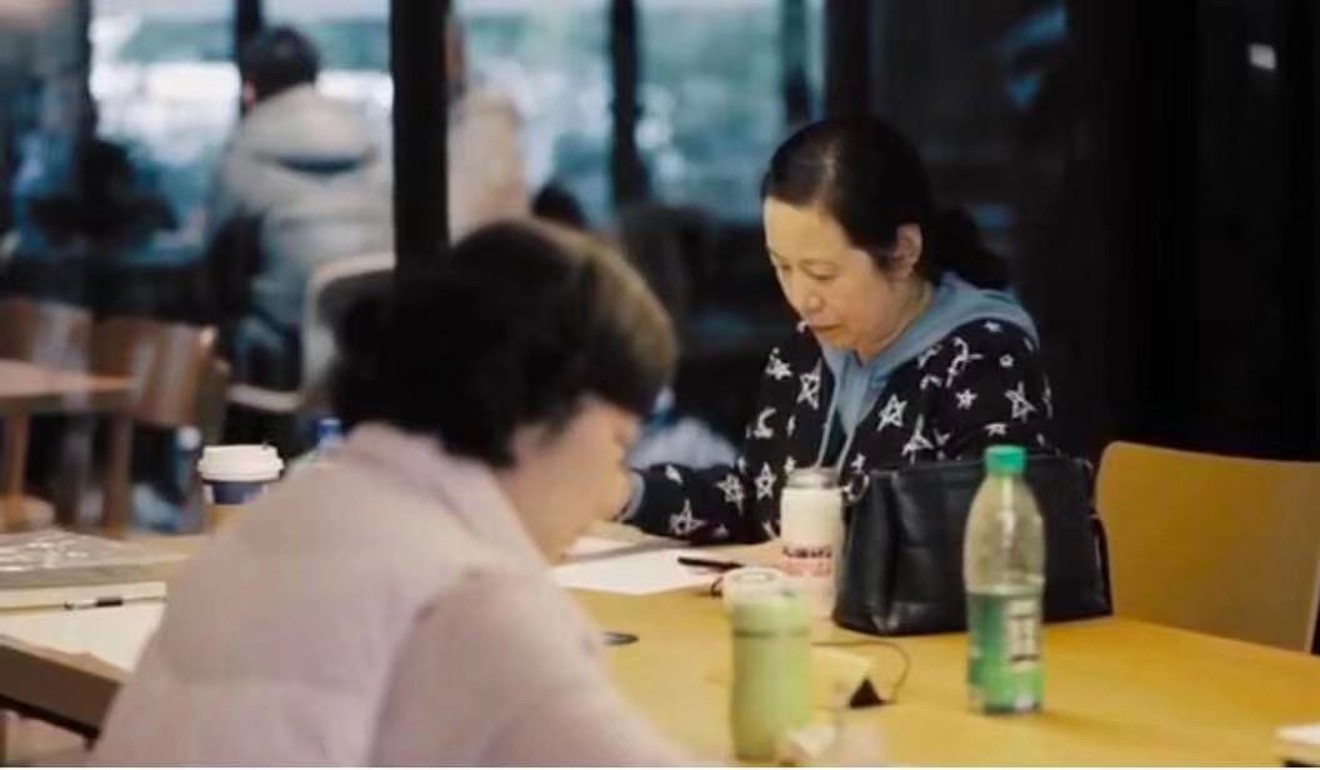Parents of China’s LGBT community have been writing to lawmakers as part of an effort to legalise same-sex marriage. Photo: Handout
It is not the first time activists have campaigned for China to embrace same-sex marriage, he said. For years, they have been advocating through publicity stunts, such as public weddings, as well as by lobbying legal experts and lawmakers.
Most people in China’s LGBT community remember the first same-sex marriage lawsuit in China, when Sun Wenlin tried to marry his boyfriend Hu Mingliang in 2015.
Sun and Hu had been in a relationship for a year, and Sun wanted to see whether they could get lucky and register to marry, even though there was no law granting legal status to homosexual couples.
They did not succeed. The office director who turned them down said, “If you came with a woman today, I would register you right away.” Sun replied that he didn’t like women, he liked men and wanted to marry Hu, to which the director responded, “You are so ridiculous”.
Sun took the case to court, claiming the director’s remarks were discriminatory. He lost the case, but has since devoted himself to activism.
In 2017, before China’s annual meeting of lawmakers in March, Sun started lobbying representatives. He got hold of a list of 113 phone numbers and started calling them one by one. When they answered, Sun introduced himself and said he wanted to talk about same-sex marriage. They would immediately hang up, so he followed up the calls with text messages.
According to Sun, after a month of texting, one representative finally met him for tea. It was a university science professor, who said he had met gay people when he studied abroad in the 1990s. He listened to Sun’s appeal carefully and signed his petition. Sun declined to name the professor due to the sensitivity of the issue.
Unfortunately, Sun did not reach the 30 signatures needed to prompt lawmakers to review the proposal, but he is hopeful for the future. “We think the push for same-sex marriage should have two prongs – advocacy from the public, and efforts to push the lawmakers, such as lobbying representatives,” he said.
Meanwhile, other activists have repeatedly pushed stories of LGBT public weddings in Chinese media. Data from these activists show that, starting in 2014, the number of stories portraying the LGBT community in a positive light began increasing in China’s mainstream media. In 2015, they said, there were 867 pieces of LGBT-related news.
Ah Qiang, director of the Guangzhou-based NGO PFLAG, has been holding weddings on a rainbow cruise ship. In 2017, he booked a cruise ship which carried more than 1,000 people from China to Japan, with 10 couples taking part in a group wedding during the voyage.
The rainbow cruises have also come under pressure. At first, Ah Qiang wanted to hold the weddings in a function room on board
the ship but someone in charge called the cruise management to shut down the power supply, forcing the ceremony to be held on deck, he said.
In July this year, when he organised a rainbow cruise from China to Vietnam, Ah Qiang cancelled the planned group wedding out of fear there would be trouble from the authorities.
Despite the efforts of LGBT activists, Yanzi said there had been almost no results in the push for legal recognition of same-sex marriage.
One small step towards ensuring the rights of LGBT couples was taken in 2017 when China’s guardianship laws were introduced, dictating that any adult can appoint a legal guardian.
The intention was to improve care for China’s rapidly ageing population, but some gay couples have also been taking advantage of the law, as it can enshrine some of their rights as a couple, Yanzi said.
“But in other legal aspects, there have been no developments in all these years that ensures the rights of gay couples,” he said. “We feel the need to push forward even more.”
But Yanzi is hopeful for the future. He has seen tremendous support among young people, who are increasingly accepting towards the LGBT community, as evidenced in repeated polls about same-sex marriage on Weibo, China’s social media platform.
“Even though these are just Weibo users, there is a high support rate (towards same-sex marriage),” he said. “I believe if the public has a chance to get in touch with this sort of information, their attitudes will slowly change.”


Comments